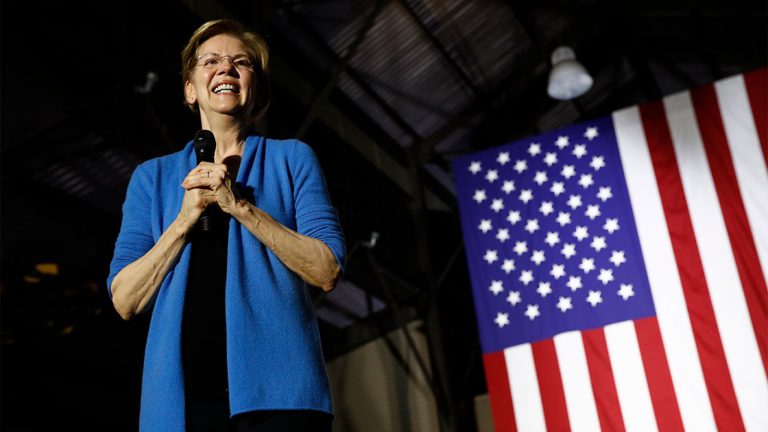Supreme Court Affirms Free Expression in 303 Creative Case
There’s so much media lying about what the “303 Creative” case was about. No, it was not about denial of service to people based on their sexual identity (e.g., MSNBC, CNN, NY Times.) It was reaffirmation that the State cannot compel you into expressing things you do not wish to express.
The right to withhold expression has been repeatedly held by the Supreme Court. They reaffirmed it last week.
Some in the media fretted that 6 justices could possibly rule this way. I found it shocking that 3 sitting Supreme Court justices are totally willing to abandon First Amendment protections. Justices Sotomayor, Jackson and Kagan are content with the State determining what thoughts must be, and also cannot be, expressed by creative professionals.
The decision should have been unanimous.
So many on the left seem to forget that they not only exercise but celebrate the right not to engage in expression all the time, even if they are in commerce, and even if the prospective buyer happens to be in a protected class (gender identity, race, religion.)
Consider that Vera Wang and other designers refused to make custom gowns for Melania Trump. Several of them did so pre-emptively, without being asked. Yet Melania is in a protected class, as she’s female.
But what was the basis of the refusal? The dozens of designers refusing to dress Melania Trump did so not because of her status as a woman, but because they didn’t want to engage in expression of “support.” Refusal hinged upon the expression requested (which they believe would have shown support for views they disagree with), not any attribute of the customer.
Indeed, it could even be said that the designers’ refusals were ultimately based upon Melania’s decision of whom to marry, not her existence as a heterosexual female, nor even anything she personally said. Swap in a Democrat husband, and designers might have been honored to do her gowns.
Designers simply did not want to celebrate or support the partnership of the two, even though that marriage (presumably!) was perfectly legal. And even though they likely celebrate weddings and events and political balls and even inaugurations with design services. Just because the Trump wedding was presumably legal does not mean all service providers must honor or celebrate the partnership. Just because the election was formally decided doesn’t mean all creative professionals must honor it.
Luckily for Vera Wang and other designers, SCOTUS adamantly solidified their legal right to opt out.
Several Rockettes refused to dance at the Trump Inaugural. Rock stars frequently refuse to perform for candidates they don’t like.
Likewise, screenplay writers regularly decline opportunities by entire category — e.g., in porn or slasher films, say. T-shirt makers refuse to make fascist or homophobic merchandise. And all that is great! The right to engage in expression or refrain from it is a freedom we Americans have. The government cannot compel you to do so. People don’t even need to cite religious reasons for opting out.
Note again that when these opt-outs happen, it is not only acceptable, it is often applauded.
After all, how did the #RESIST movement manifest, anyway? Much of it involved individuals opting out of participating in things that didn’t align with their values or principles. And it certainly involved affirmative expression as well. They exercised their right of expression.
You need to accept that this principle works for everyone in America. It works regardless of viewpoint, or even any religious-based argument. The SCOTUS decision would have been the same even if the 303 Creative LLC founder had no religious views whatsoever. Her religious beliefs are entirely incidental to this ruling.
You don’t lose First Amendment protection — which includes the right not to express — just because you are in creative work.
Do you disagree with this ruling? Take a moment to imagine the power you’d like the State to have in the hands of your worst ideological foes. Do you see any downsides to allowing the State to compel your expression?
Imagine a truly “fascist” government at the federal or State level. Should the State have the power to compel you to promulgate views abhorrent or even just mildly offensive to you? Should it compel you to create a “Make America Great Again” t-shirt? A swastika? A burning cross? Should Etsy sellers be compelled to make posters emblazoned with “trans men are men” messages, or do you think they should have the right to refuse? What if those messages were demanded by someone in a “protected class,” let’s say, a racial minority, a gay individual, or a female? Does that change it in any way? Whose right prevails?
Look. It was STIPULATED by both sides in the case that the vendor would sell web design services to customers regardless of sexual identity or other criteria. But, like any freelancer or creative professional, she wants to be able to decline MESSAGES she does not want to engage in.
This is not new. This happens all the time. Screenplay writers decline writing slasher films. T-shirt makers say “I’m sorry, I won’t do that for you.” Mural painters decline proposed commissions. And so on.
As for me, I strongly support gay marriage, and I’d be happy to create a website honoring it. Her beliefs are not my own.
In 1943, at the height of WWII, the Supreme Court affirmed that American students cannot be compelled to stand and speak the Pledge of Allegiance. They held that the right to free expression includes the right not to speak.
This is no different.
As for remedies, luckily there are many vendors who would be happy to engage in such messaging.
Gorsuch’s opinion is well worth a read. Here’s his conclusion:
The First Amendment’s protections belong to all, not just to speakers whose motives the government finds worthy. In this case, Colorado seeks to force an individual to speak in ways that align with its views but defy her conscience about a matter of major significance. In the past, other States in Barnette, Hurley, and Dale have similarly tested the First Amendment’s boundaries by seeking to compel speech they thought vital at the time. But abiding the Constitution’s commitment to the freedom of speech means all will encounter ideas that are “misguided, or even hurtful.” Hurley, 515 U. S., at 574. Consistent with the First Amendment, the Nation’s answer is tolerance, not coercion. The First Amendment envisions the United States as a rich and complex place where all persons are free to think and speak as they wish, not as the government demands. Colorado cannot deny that promise consistent with the First Amendment.
303 Creative LLC vs. Elenis, Supreme Court 20203
Read that again:
“The First Amendment’s protections belong to all, not just to speakers whose motives the government finds worthy.”
My nomination for Best Sentence of the Decade.
One common rejoinder to this is “Can’t a waiter, for instance, say that they won’t serve a gay couple, calling it a form of expression? Isn’t this all a big loophole?”
No.
The ruling relates to custom expressions; one cannot deny selling existing products to a customer based upon their protected class (e.g., sexual identity, race, religion, etc.), but it is entirely appropriate to for vendors to deny engaging in particular expressions.
Before the district court, Ms. Smith and the State stipulated to a number of facts: Ms. Smith is “willing to work with all people regardless of classifications such as race, creed, sexual orientation, and gender” and “will gladly create custom graphics and websites” for clients of any sexual orientation; she will not produce content that “contradicts biblical truth” regardless of who orders it; Ms. Smith’s belief that marriage is a union between one man and one woman is a sincerely held conviction; Ms. Smith provides design services that are “expressive” and her “original, customized” creations “contribut[e] to the overall message” her business conveys “through the websites” it creates; the wedding websites she plans to create “will be expressive in nature,” will be “customized and tailored” through close collaboration with individual couples, and will “express Ms. Smith’s and 303 Creative’s message celebrating and promoting” her view of marriage; viewers of Ms. Smith’s websites “will know that the websites are her original artwork;” and “[t]here are numerous companies in the State of Colorado
303 Creative LLC v. Elenis, p 1-2
and across the nation that offer custom website design services.”
Put another way, even if a heterosexual customer were to request that 303 Creative built a website honoring something which didn’t align with the freelancers’ own values, that freelancer cannot be compelled by the State to do so.
Those in commerce cannot discriminate based on protected class (e.g., religion, sex, race, sexual preference.) And those protections are emphatically good things.
But you, even in commerce, are free to opt out of creating messages or honoring things you do not wish to, even if the potential buyer happens to be in that protected class. The State cannot and should not have its hand on the artists’ brush. It was shocking that three justices (Kagan, Brown-Jackson, and Sotomayor) are so willing to entrust the State with this power.
Luckily, as with most creative professions, there are hundreds of thousands of vendors in the marketplace. The remedies are simple, and vastly better than entrusting the State with the power to decide which messages are good and which are doubleplus-ungood.






